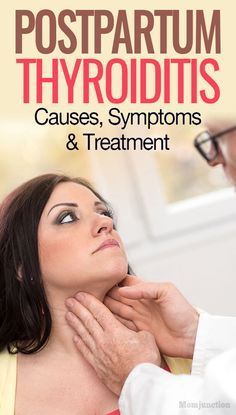Coping with postpartum thyroid issues: Strategies for recovery

One of the most common health concerns affecting new mothers is postpartum thyroid issues. The dramatic changes experienced during pregnancy and childbirth can lead to imbalances in thyroid hormone production, which in turn can have significant impacts on a woman’s physical and mental well-being.
Understanding Postpartum Thyroid Issues
Postpartum thyroid issues encompass a wide range of conditions related to abnormal thyroid function after giving birth. The most common postpartum thyroid disorder is postpartum thyroiditis, which affects around 7-10% of new mothers. This condition is characterized by inflammation of the thyroid gland and can lead to temporary hyperthyroidism followed by hypothyroidism.
While the exact causes of postpartum thyroid issues are not fully understood, it is believed that the hormonal fluctuations during and after pregnancy, as well as immune system changes, play a significant role. The symptoms can vary from mild to severe and may include fatigue, depression, weight changes, hair loss, and difficulty concentrating.
Strategies for Coping and Recovery
1. Seek medical advice: If you suspect you may be experiencing postpartum thyroid issues, it is crucial to consult with your healthcare provider. They can perform the necessary blood tests to diagnose your condition accurately. Based on the diagnosis, they will recommend an appropriate treatment plan tailored to your specific needs.
2. Medication: In some cases, medication may be prescribed to regulate thyroid hormone levels. This typically involves the use of synthetic thyroid hormones, such as levothyroxine, to address hypothyroidism. The dosage and duration of medication will be determined by your healthcare provider.
3. Maintain a balanced diet: Consuming a well-balanced diet is essential for overall health, including thyroid function. Include foods rich in iodine, selenium, and zinc, such as seaweed, nuts, and lean meats. Avoid processed foods and limit caffeine intake, as they can interfere with thyroid hormone production.
4. Regular exercise: Engaging in regular physical activity not only supports overall health but can also help alleviate symptoms associated with postpartum thyroid issues. Exercise boosts energy levels, improves mood, and aids in weight management.
5. Manage stress: Stress can worsen symptoms and disrupt hormonal balance. Incorporate stress management techniques into your daily routine, such as deep breathing exercises, meditation, or engaging in activities you enjoy. Prioritize self-care and give yourself time to rest and relax.
6. Support groups and counseling: Joining support groups or seeking counseling can be immensely helpful in dealing with the emotional and psychological aspects of postpartum thyroid issues. Connecting with others who have had similar experiences can provide valuable insights and a sense of community.
Conclusion
Coping with postpartum thyroid issues can be challenging, but with proper medical guidance and lifestyle adjustments, recovery is possible. By seeking timely medical advice, following prescribed treatments, maintaining a healthy lifestyle, and seeking support, women can effectively manage and overcome postpartum thyroid issues, restoring their well-being and enjoying the precious moments of motherhood.





